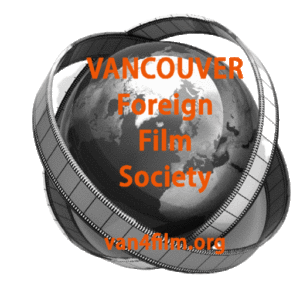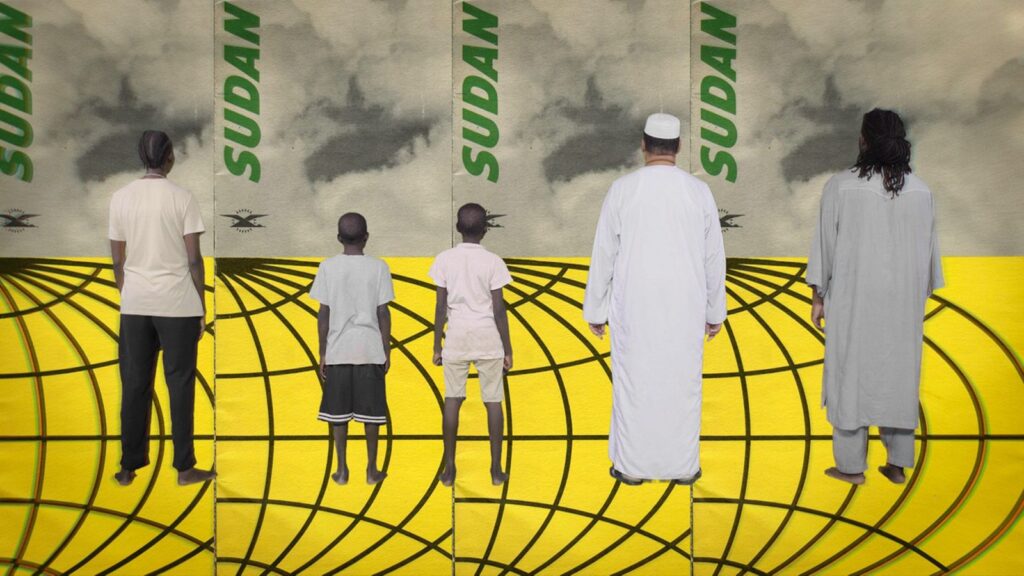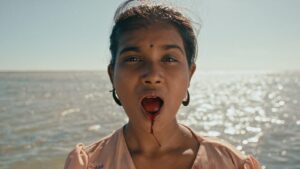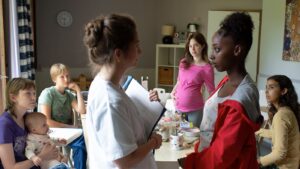Title: Khartoum
Foreign Title:
Year: 2025
Country: UK/Sudan/Germany/Qatar
Language: In Arabic with English subtitles
Directors: Anas Saeed, Rawia Alhag, Ibrahim Snoopy, Timeea Mohamed Ahmed & Phil Cox
Documentary is a universal language: it shares real stories and emotions with audiences across the world. Khartoum begins as a conventional documentary, following the lives of five citizens in Sudan’s capital during the fragile days after the coup that ended three decades of dictatorship and ushered in military rule. Brimming with optimism and belief in newfound democracy and freedom of speech, the film introduces a young single mother running a street coffee stand, a civil servant who breeds pigeons, a member of the resistance committee, and two children surviving by collecting and selling plastic bottles. Their dreams and enthusiasm embody the spirit of renewal—until civil war breaks out.
The conflict, still raging, brings devastating casualties and reignites unresolved struggles of identity and culture. The five protagonists, along with the filmmakers, are forced to flee to neighboring countries, mostly Egypt, in search of safety.
It is here that the film takes a striking turn, both in content and form. Employing green-screen, augmented reality, animation, and CGI, the directors invite the exiles to reenact moments from their final days in Khartoum. The staging is explicit: each scene begins with the storyteller describing the surroundings and guiding the others through their actions. Detached and emotionless on the surface—seemingly the opposite of traditional documentaries, this method allows something profound to emerge. Through this deliberate restraint, emotion seeps in. Pain is held back, then revealed as part of a cultural language. Horror, loss, and the end of hope unfold gently but with devastating clarity, giving viewers the time and space to absorb them.
These sequences are interwoven with footage from the film’s early, observational stage and with recent interviews in which the participants speak about their enduring love for Sudan. Between reenactments, we also glimpse them in the dressing room, preparing, resting, sharing moments, gradually shaping a collective portrait of resilience, tenderness, and multicultural identity.
We know little about Sudan. Once home to one of the world’s oldest kingdoms, today it is a poor nation torn between African tribes and Arab nations, still recovering from British and Egyptian occupations. It is a country struggling to redefine itself. Khartoum transcends documentary, becoming a form of cultural anthropology. It offers access to a world too often reduced in the news to a passing headline about “another war in Africa.” Here, individual lives replace abstraction; faces and voices replace statistics. The film transforms detachment into intimacy, revealing the deep love, care, and beauty of Sudanese culture in both it’s difference and its universality.




